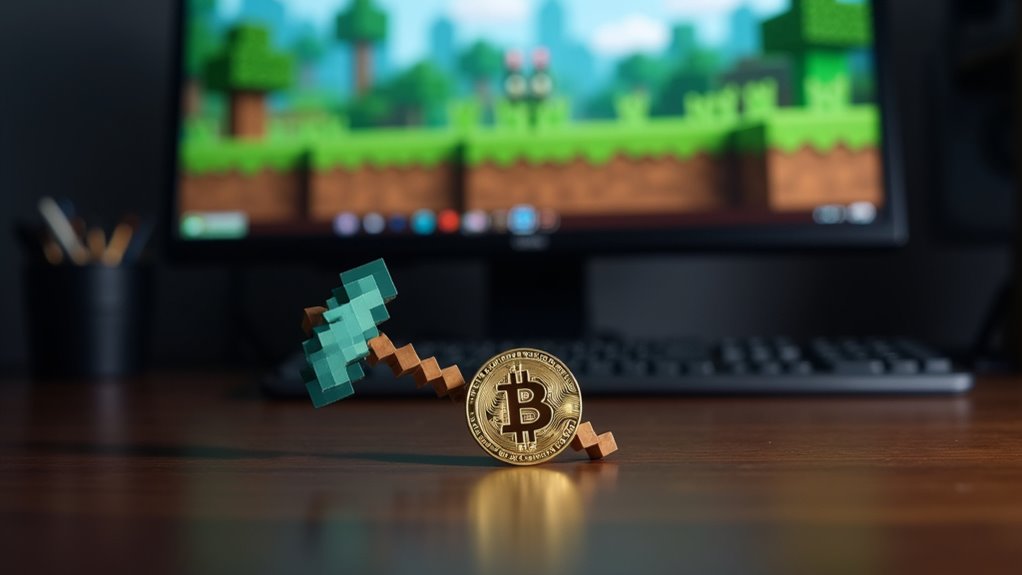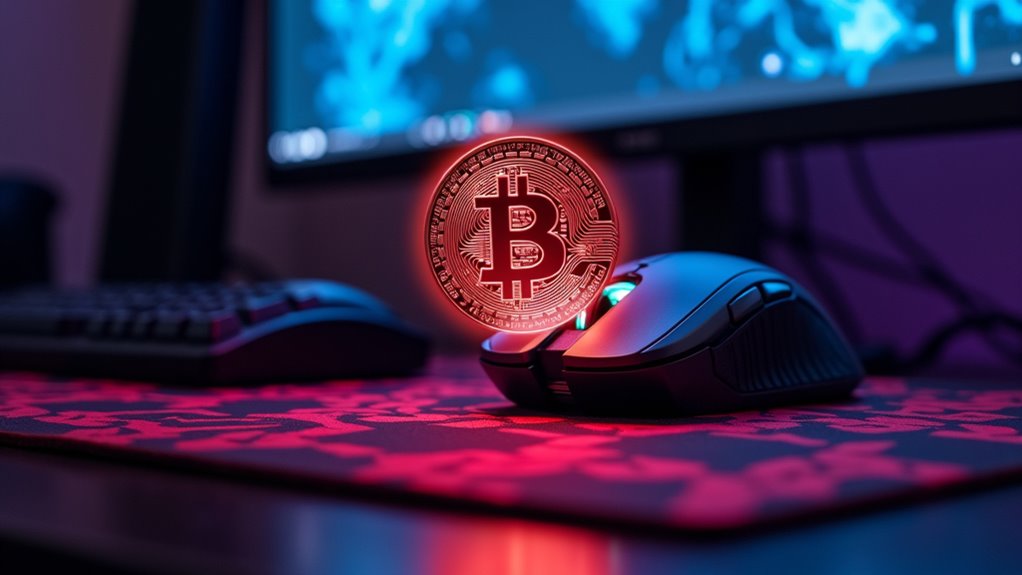Crypto transfer times run the gamut from snail-pace to lightning-fast. Bitcoin and Ethereum, the dinosaurs in crypto, lumber along at 10 and 5 minutes respectively. Meanwhile, newer networks like Solana zip through transfers in 0.4 seconds, with Ripple and Algorand clocking in under 5 seconds. Network congestion can throw a wrench in these speeds, and higher fees let wealthy traders cut the line. The evolution of blockchain tech keeps pushing these boundaries farther.

While Bitcoin may be the sovereign of crypto, it’s certainly not winning any races regarding transfer speeds. The OG cryptocurrency takes a leisurely 10 minutes to confirm transactions – practically an eternity in the digital age. And Ethereum, the second-in-command? Not much better, clocking in at around 5 minutes per transaction.
Bitcoin’s reign as crypto king can’t hide its turtle-like speed, lagging behind newer, faster cryptocurrencies in the digital fast lane.
But here’s where things get interesting. Some newer cryptocurrencies are leaving these dinosaurs in the dust. Take Solana, for instance. This speed demon processes transactions in under half a second. That’s right – 0.4 seconds. Ripple (XRP) and Algorand aren’t far behind, both completing transfers in under 5 seconds. It’s like comparing a tortoise to a cheetah wearing rocket boots. With its revolutionary architecture, Solana achieves an incredible 65,000 TPS capacity.
Network congestion can throw a wrench in the activities, though. When everyone’s trying to move their crypto at once, even the fastest networks can slow to a crawl. It’s like rush hour traffic, but for digital assets. Smart traders know they can jump the queue by paying higher transaction fees – money talks, even in crypto. Solana’s unique Proof-of-History mechanism helps maintain its impressive speeds even during high network activity.
The technology behind these speeds is fascinating. Solana’s proof-of-stake system is like a well-oiled machine compared to older blockchain technologies. Some networks are getting creative with off-chain solutions, processing transactions outside the main blockchain to speed things up. Stellar and Cosmos have joined the speed race too, offering near-instantaneous transfers. The innovative Pure Proof of Stake mechanism of Algorand ensures both swift processing and immediate finality.
The crypto universe isn’t standing still. As demand grows, so does the pressure for faster transactions. New solutions are constantly emerging – sharding, layer-2 scaling, you name it. Competition is fierce, and nobody wants to be the slowpoke of the bunch. The future of crypto transfer speeds looks promising, with networks like HBAR and EOS pushing the boundaries of what’s possible.
Remember those early days when waiting 10 minutes for a Bitcoin transfer seemed reasonable? Those days are long gone. In crypto’s evolution, speed is becoming as important as security. The race for faster transfer times isn’t just about convenience – it’s about staying relevant in an increasingly fast-paced digital economy.
Frequently Asked Questions
Can I Cancel a Cryptocurrency Transaction After Sending It?
Cryptocurrency transactions can only be canceled if still pending and unconfirmed. Once confirmed on the blockchain, transactions become permanent and irreversible. Users must verify details carefully before sending to avoid permanent losses.
Why Does My Crypto Transfer Get Stuck Sometimes?
Cryptocurrency transfers can become stuck due to network congestion, insufficient transaction fees, incorrect wallet configurations, or smart contract issues. These technical complications may delay or prevent successful completion transactions.
What Happens if I Send Crypto to the Wrong Address?
When cryptocurrency is sent to the wrong address, the transaction is irreversible. Funds can be permanently lost if sent to burn addresses or dead wallets, though recovery may be possible if sent to active, identifiable wallets.
Do Crypto Transfer Fees Affect Transaction Speed?
Higher cryptocurrency transfer fees typically result in faster transaction confirmations as miners prioritize transactions with larger fees. During network congestion, this relationship becomes more pronounced, making fee levels a key factor in transaction speed.
Is It Safe to Make Crypto Transfers Using Public Wi-Fi?
Making crypto transfers on public Wi-Fi is highly risky due to security vulnerabilities. Hackers can intercept data through man-in-the-middle attacks. Using VPNs or secure private networks is strongly recommended for cryptocurrency transactions.









